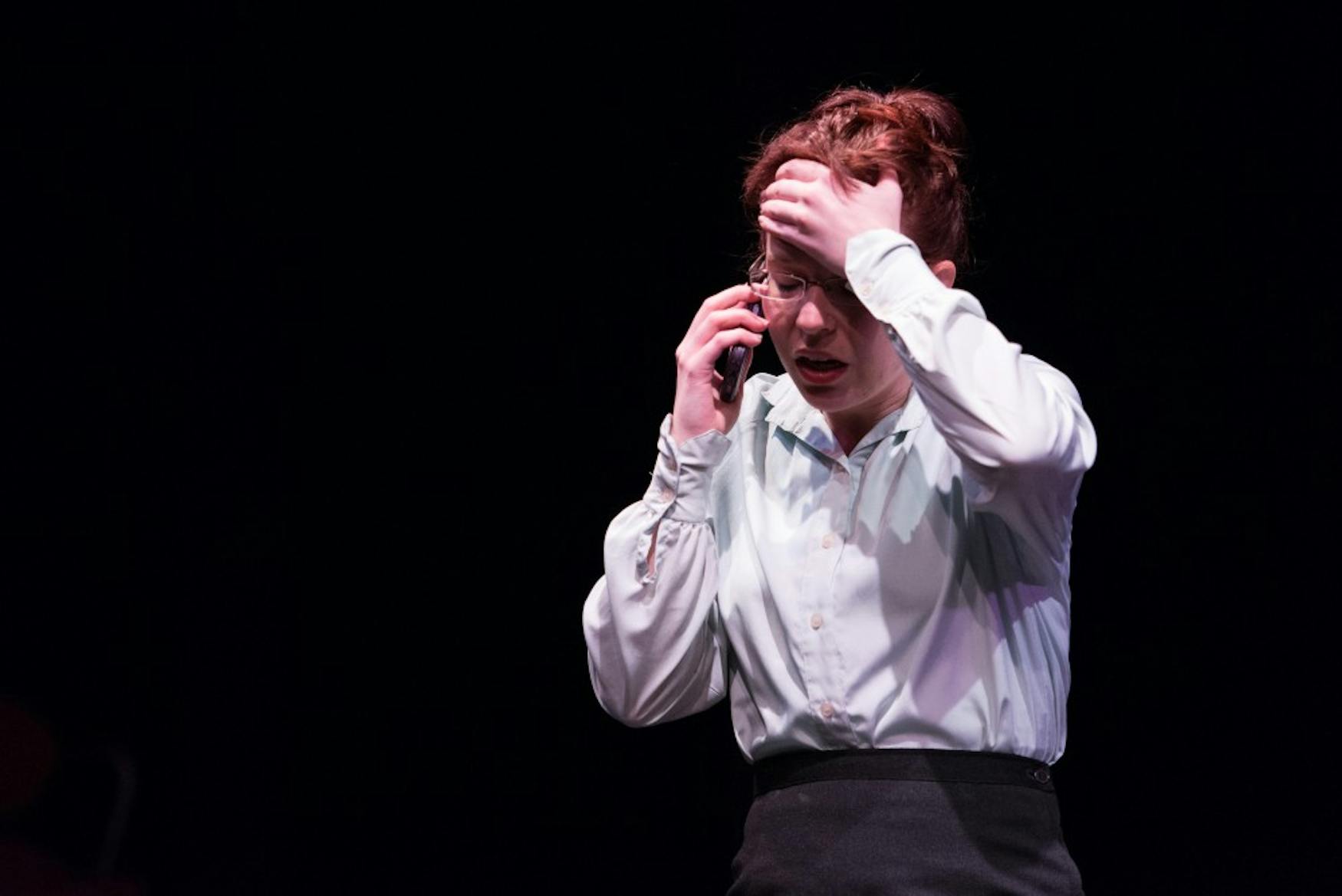BTC will present two plays, displaying a diversity of talents
For the fall semester, the Brandeis Theater Company will present two plays: Dead Man’s Cell Phone and The Conference of the Birds. While Dead Man’s Cell Phone was originally written as a play, The Conference of the Birds was originally a long-form Persian poem, written by poet Farid ud-Din. It was adapted to a play by Peter Brook and Jean-Claude Carriere. Dead Man’s Cell Phone, written by Sarah Ruhl, will be directed by Prof. Adrianne Krstansky (THA) who frequently directs productions at Brandeis. Hafiz Karmali, an international theater artist, will direct Birds.
Dead Man’s Cell Phone premiered in 2007 at the Woolly Mammoth Theater Company in Washington, D.C. Ruhl’s plays have been produced across the world and she has won several awards. Dead Man’s Cell Phone starts in a quiet café as an unattended cell phone rings incessantly—until a woman answers the phone and becomes immersed in the deceased man’s life. According a description given on BTC’s website, the play is a satirical and funny journey of how “technology can both unite and isolate us, especially in our quest for true love.” The play also explores how society remembers the deceased and how that affects our own perception of life.
In an email to the Justice, Krstansky explained that BTC chose Dead Man’s Cell Phone because “Brandeis students seem to have a natural inclination and understanding of [Sarah Ruhl’s] world, her characters and her quirky imagination.” Last year, Theater major Viktoria Lange ’14 directed Eurydice, also written by Ruhl. Krstansky explained that her favorite part about working on Dead Man’s Cell Phone was working with the students, whose questions and insights made her explore the play deeper. Zoe Golub-Sass ’16 served as the assistant director, “who keeps her nose in the script, helps me find the detail, helps me hear the meaning of the language and stage directions and find the play from the words,” Krstansky explained.
As for BTC’s other production this semsester, Karmali’s directorial debut at Brandeis will offer a different variety of theater. According to his website, Karmali has a “special interest in cross-cultural performances with a view to showcasing indigenous performing arts of the Islamic world.” Through theater, Karmali hopes to “promote a better understanding of the arts and ideas of the Muslim world,” his biography explains. This is Karmali’s first time collaborating with BTC, upon being invited by Cynthia Cohen, director of Peacebuilding and the Arts, Profs. Judith Eissenberg (MUS) of MusicUnitesUS and Robert Walsh (THA). In an email to the Justice, Karmali elaborated that he anticipates a “lively exchange of ideas with students and faculty members as well as other invited professional guest artists.”
The Conference of the Birds is being produced in conjunction with MusicUnitesUS, a Brandeis program that seeks to promote cultural understanding through music. In an email to the Justice, Eissenberg explained “that music is a common medium that can help to unite diverse cultures in our own neighborhoods and transcend boundaries in the global community.”
In the fantastic play, the birds of the world gather to determine who will be their new king, drawing on Iranian mythology, word play and Sufi styles of literature to develop the story. The play also gives each bird a specific significance and flaw that is revealed to the audience as their journey progresses. Eissenberg explained that MusicUnitesUS wanted to work on The Conference of the Birds because of its “universal appeal” and touching way it takes on the nature of God. In an email to the Justice, Karmali explains that Birds is a “humanist allegory about man’s quest for deeper meaning.”
When asked why he chose to direct Birds, Karmali explained that he wanted “to present a more enlightened version of Muslim practices based on the spiritual or mystical dimension” in a time when the world mainly sees the “radical, extremist, politicized versions of Islam.” Already deep into the directing process, Karmali expressed his surprise at the youth and creativity of the student performers, who are “brave enough to try almost anything.” When asked about his directing process, Karmali defined it as a “a step by step journey towards a dance-theatre production in the style of a mock-epic mystical fable.”
Both plays seem to promise an inquisitive and thought-provoking performance as they explore dynamic themes in society.
Dead Man’s Cell Phone will be performed from Oct. 9 through 12 and The Conference of the Birds will be performed in Nov. 20 to 23, both in the Laurie Theater in Spingold Theater Center.




Please note All comments are eligible for publication in The Justice.